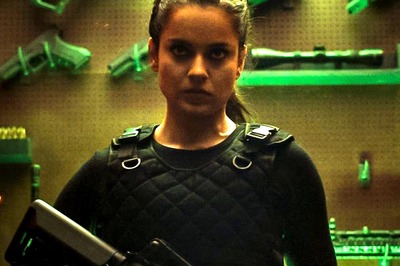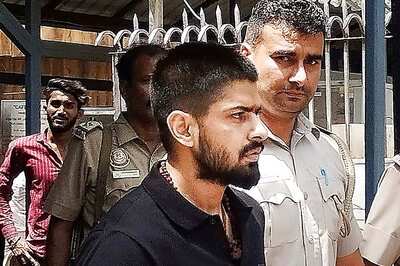
views
Cairo: Pro-democracy protesters returned in tens and thousands on Friday to Tahrir Square, the iconic symbol of revolution that overthrew Hosni Mubarak, asking the new military rulers to step up political reforms and dismissing the remnants of the erstwhile dictatorial regime.
Thousands demanded the removal of Prime Minister Ahmed Shafiq, one of the Mubarak-era holdovers from office. The crowd also performed Friday prayers in the square.
In a sermon to the worshippers, top cleric Sheik Mohammed Jibril called for the dissolution of Mubarak's National Democratic Party, Middle East News Agency said.
The cleric said God had helped the uprising bring down bad rulers. "This is the natural end of all corruption."
The Egyptian military took over after Mubarak was ousted from power, but assigned government affairs to a caretaker Cabinet until polls can be held.
The iconic square had been the centre of an 18-day uprising that brought down Mubarak on February 11.
Pro-democracy protesters said they are worried that the Army is not taking enough steps for moving quickly enough on democratic reforms, including repealing emergency laws, releasing political prisoners and removing members of Mubarak's regime from power.
Some waved flags of Libya to show support for the uprising in the North African country next to Egypt. Demonstrators said they would stage large rallies every Friday until their demands are met.
Some protesters said they are skeptical about the military's resolve to fulfill all the protesters' demands, saying that the Army benefited from the old regime.
A protester said that masses have to force the military to change. If the situation is left to the army, the country will be back to dictatorship again, he was quoted as saying by local media reports.
The military rulers have disbanded both houses of parliament and promised constitutional reforms after exit of Mubarak that will allow wider masses participation in elections, to be held within six months.
The military also promised to repeal emergency laws that give security forces largely unchecked powers.
Egyptian authorities have also taken steps against members of Mubarak's regime. A number of former ministers and prominent businessmen have been arrested on corruption allegations.
Some two dozen ex-ministers and business leaders are under investigation. Pro-democracy protesters have often mentioned corruption as a key motive behind their movement.
Certain political figures of the erstwhile Mubarak regime, who have not been held accountable for their actions, were the target of these demonstrators.
The demonstration comes as the fact-finding mission formed to probe into the violence during protests published its report, which stated that Egypt's Ministry of Interior used live ammunition to quell protesters and vehicles to run them over.
A micro-bus driver was shot by a policeman after a clash between them in Cairo's suburb of Maadi.
Angry residents set police cars on fire and headed to the police station, but the army's presence prevented their march forward.
The incident prompted disturbance among citizens who were left wondering when the police force would be deployed to maintain law and order.
Mubarak's 30-year-reign over the Arab world's most populous country came to an end after more than two weeks of nation-wide protests demanding for a democratic change.


















Comments
0 comment